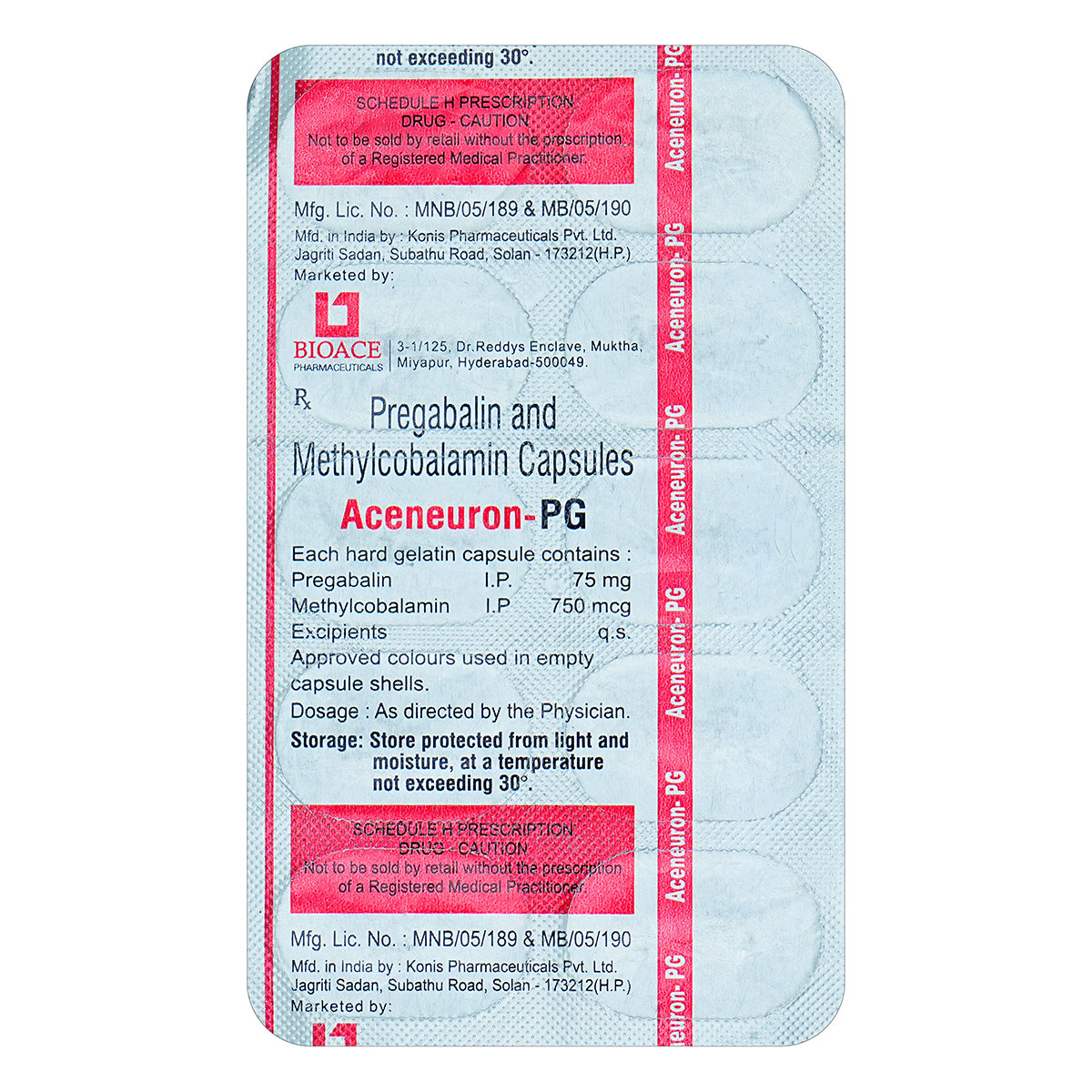Methylcobalamin
About Methylcobalamin
Methylcobalamin belongs to the class of vitamins primarily used to treat peripheral neuropathies and megaloblastic anaemia caused by vitamin B12 deficiency. Megaloblastic anaemia is a condition in which the red blood cells are abnormally large. Peripheral neuropathy causes damage to the nerves located outside the spinal cord and brain.
Methylcobalamin contains Methylcobalamin, a form of vitamin B12, which protects the nerves from damage and promotes blood cell production. It regulates body functions, such as cell multiplication, blood formation, and protein synthesis.
In some cases, Methylcobalamin may cause side effects such as pain, itching, swelling or redness at the injection site, nausea, vomiting, diarrhoea, and headache. Most of these side effects do not require medical attention and resolve gradually over time. However, you are advised to talk to your doctor if the side effects persist or worsen.
Let your doctor know if you are allergic to methylcobalamin, or any other medications. Inform your doctor if you are pregnant, planning a pregnancy, or are breastfeeding. Keep your doctor informed about your present and past medical history and ongoing medicines to rule out any side effects.
Uses of Methylcobalamin
Medicinal Benefits
Methylcobalamin belongs to the class of vitamins primarily used to treat peripheral neuropathies and megaloblastic anaemia caused by vitamin B12 deficiency. Methylcobalamin contains Methylcobalamin, a form of vitamin B12, which protects the nerves from damage and promotes blood cell production. It regulates body functions, such as cell multiplication, blood formation, and protein synthesis.
Directions for Use
Storage
Side Effects of Methylcobalamin
- Painfulness or tenderness at the injection site
- Nausea
- Vomiting
- Diarrhoea
- Loss of appetite
- Headache
Drug Warnings
Do not take Methylcobalamin if you are allergic to any of its contents. Inform your doctor if you have toxic amblyopia (poor vision which may be due to Vitamin B12 deficiency), low potassium levels in the blood, iron or folic acid deficiency, or if you have/had optic nerve damage. Consult your doctor if you are pregnant or breastfeeding. Methylcobalamin may cause dizziness. Do not drive or operate machinery if you experience dizziness.
Drug Interactions
Drug-Drug Interactions: Methylcobalamin may interact with anticancer medications (arsenic trioxide), antimetabolites (mercaptopurine), antibiotics (chloramphenicol), and oral contraceptives.
Drug-Food Interactions: No interactions found.
Drug-Disease Interactions: Inform your doctor if you have hypokalaemia, optic nerve damage, malabsorption, and renal impairment.
Drug-Drug Interactions Checker List:
Safety Advice

Alcohol
cautionIt is not known if alcohol affects Methylcobalamin. Consult your doctor if you have any concerns.

Pregnancy
cautionConsult your doctor if you are pregnant or planning for pregnancy.

Breast Feeding
cautionLet your doctor know if you are a nursing mother before taking Methylcobalamin; your doctor will decide whether Methylcobalamin can be taken by breastfeeding mothers or not.

Driving
cautionMethylcobalamin may cause dizziness. Do not drive or operate machinery if you experience dizziness.

Liver
cautionLimited information is available for the use of Methylcobalamin in patients suffering from liver impairment. Please consult your doctor if you have any concerns.

Kidney
cautionLimited information is available for the use of Methylcobalamin in patients suffering from kidney impairment. Please consult your doctor if you have any concerns.

Children
safe if prescribedMethylcobalamin should be used in children only if prescribed by the doctor.
Habit Forming
Diet & Lifestyle Advise
- Include fresh fruits, vegetables, milk, eggs, meat, and fish into your diet.
- Avoid oily and canned foods.
- Quit smoking and avoid drinking alcohol.
- Avoid tea and coffee.
Patients Concern
Disease/Condition Glossary
Megaloblastic anaemia: Megaloblastic anaemia is a blood disorder in which the red blood cells are abnormally larger than normal. Symptoms include abnormal paleness, decreased appetite, lack of energy, diarrhoea, irritability, numbness and tingling sensation in the hands and feet.
Peripheral neuropathy: Peripheral neuropathy is a condition in which the nerves outside the brain and spinal cord are damaged or diseased. If it is left untreated, it can lead to permanent nerve damage. Symptoms include numbness, weakness, pain, pins and needles sensation.
FAQs
Methylcobalamin helps protect the nerves from damage and promotes blood cell production. It regulates body functions, such as cell multiplication, blood formation, and protein synthesis.
Inform your doctor about all your medications, especially if you are taking chloramphenicol, colchicine, oral diabetes medicine (metformin), and drugs that reduce stomach acid such as cimetidine lansoprazole, omeprazole and antibiotic medications. These medications may interfere with Methylcobalamin and cause unpleasant side effects or might make Methylcobalamin less effective.
Vitamin B12 sources include eggs, beef, liver, chicken, trout, salmon, tuna, clams, fortified breakfast cereal, low-fat milk, yoghurt, and cheese.
Diarrhoea might be a side-effect of Methylcobalamin. Drink lots of fluids and eat non-spicy food. If you find blood in stools (tarry stools) or if you experience severe diarrhoea, consult your doctor.







